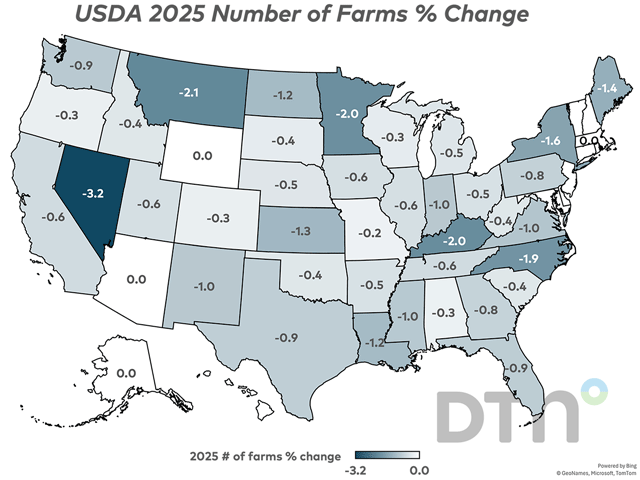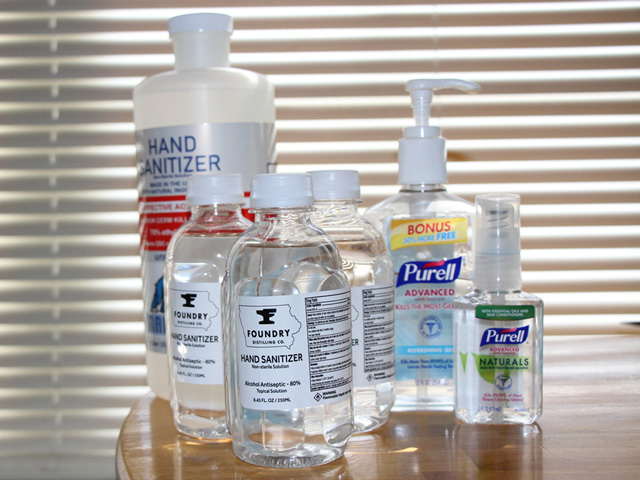FDA Pulls Back on Sanitizer Restriction
Temporary Guidance Allows Higher Levels of Some Chemicals in Hand Sanitizer
OMAHA (DTN) -- The Food and Drug Administration has temporarily relieved some restrictions on hand sanitizer produced by ethanol plants in an effort to allow companies to continue to maintain supplies amid COVID-19, the agency announced in a news release on Monday.
The ethanol industry has seen its market crash as a result of the COVID-19 economic shutdown. Many ethanol producers, however, began selling alcohol for sanitizer production and producing sanitizer themselves.
In May, the FDA began to restrict ethanol plants producing sanitizer because of concerns about hazardous chemicals in the end product coming from plants.
FDA first sent out guidance to alcohol producers in late March, greenlighting more alcohol-based sanitizer from ethanol producers. The agency changed the rules in an April 15 guidance. The guidance stated that fuel-grade ethanol needed to meet specific grade requirements and be screened for impurities. Ethanol plants would have to submit information to FDA on impurity levels, because it does not meet specific standards.
On Monday, FDA said it will ease the restrictions.
P[L1] D[0x0] M[300x250] OOP[F] ADUNIT[] T[]
"Although it is our understanding that some larger hospital systems have been able to replenish their supply of hand sanitizer, we continue to hear that some smaller hospital systems and outpatient facilities are still experiencing difficulties accessing alcohol-based hand sanitizers," the agency said.
"We also recognize that some consumers may not be able to find alcohol-based hand sanitizer in their local area, and, when they do, it is in limited quantities. The FDA is working with the industry to ensure that harmful levels of impurities are not present if ethanol is used in these products.
"Based on careful review and consideration of available data, we are specifying interim levels of certain impurities that we have determined can be tolerated for a relatively short period of time, given the emphasis on hand hygiene during the COVID-19 public health emergency and to avoid exacerbating access issues for alcohol-based hand sanitizer."
FDA will allow ethanol plants to temporarily produce sanitizer that has higher levels of acetaldehyde, which FDA said in the temporary policy, "appears to be genotoxic, and potentially carcinogenic, when in direct contact with tissues."
In addition, the agency will temporarily allow 2 parts per million of benzene. The U.S. Department of Health and Human Services says benzene is a known carcinogen.
Renewable Fuels Association President and Chief Executive Officer Geoff Cooper said the changes likely would not result in increased sanitizer production.
"We welcome the specificity in the new guidance, but the new interim limits for certain impurities are overly restrictive and create a roadblock for producers who could otherwise supply huge volumes of safe, clean, high-quality ethyl alcohol to hand sanitizer manufacturers," Cooper said in a statement.
For example, he said FDA's new limits on impurities are "eight times more restrictive" than what is typically found in a glass of red wine and "20 times more restrictive" than what has been allowed in hand sanitizer in Canada.
"Meanwhile, as hospitals, first responders, nursing homes, restaurants, retail stores, churches and other public and private spaces seek out new sources of hand sanitizer to address the shortage, the U.S. continues to significantly ramp up imports of hand sanitizer from China and other countries," Cooper said.
"It is unfortunate that we are importing this product from China, when abundant supplies of high-purity, American-made ethanol could be used instead."
Todd Neeley can be reached at todd.neeley@dtn.com
Follow him on Twitter @toddneeleyDTN
(c) Copyright 2020 DTN, LLC. All rights reserved.




